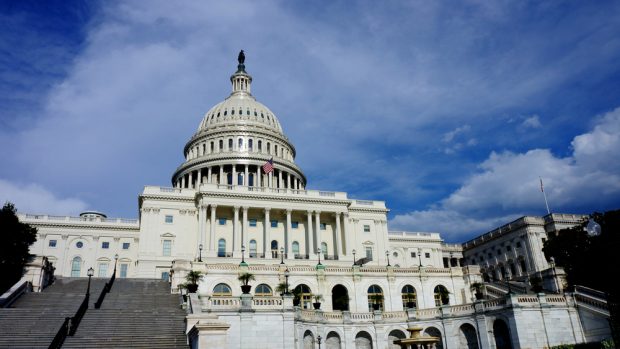 U.S. Capitol steps. (Source: Shutterstock)
U.S. Capitol steps. (Source: Shutterstock)
Credit union trade groups have quickly endorsed Senate legislation that would delay the Current Expected Credit Loss (CECL) standard from going into effect until financial regulators can study the impact it would have on small businesses and consumers.
S. 1564, introduced by several Republican senators, led by Sen. Thom Tillis (R- N.C.), would prohibit the Financial Accounting Standards Board from implementing CECL until one year after the financial regulators, including the NCUA, submit a study to the board.
Recommended For You
It was introduced on Tuesday.
Under the CECL standard, institutions will have to recognize the expected lifetime losses at the time a loan or financial instrument is recorded.
The standard does not become effective for credit union Call Reports until the start of 2022.
Credit unions continue to argue that they should not have to comply with CECL.
Last week a bipartisan group of House members told financial regulators that they are concerned that the CECL standard would reduce the availability of credit to consumers and small businesses.
Credit union trade groups, who have expressed concerns about CECL endorsed Tillis' bill.
"We urge Congress to utilize the authority it does have in order to improve CECL, or at a minimum, ensure there is sufficient, relevant information regarding CECL's impact from which future decisions can be made," CUNA President/CEO Jim Nussle said in a letter to Tillis.
Nussle said that in a recent survey of CUNA members, nearly 20% of the credit unions said that CECL would make it more difficult for credit union members to obtain credit.
NAFCU also endorsed the legislation.
"As it stands, CECL is an unnecessarily complex accounting method that only adds to the mounting regulatory stress placed upon credit unions," said NAFCU President/CEO B. Dan Berger. "Taking the time to fully study the consequences of this new regulation on consumers' access to credit and the economy as a whole is a necessary step that must be taken."
Banking groups also said they support the measure.
"Only a rigorous quantitative impact study conducted by regulators can properly assess the effect this new standard will have on financial institutions, their customers and the broader economy," said Rob Nichols, president/CEO of the American Bankers Association. "This commonsense legislation would make that happen."
© Touchpoint Markets, All Rights Reserved. Request academic re-use from www.copyright.com. All other uses, submit a request to [email protected]. For more inforrmation visit Asset & Logo Licensing.






